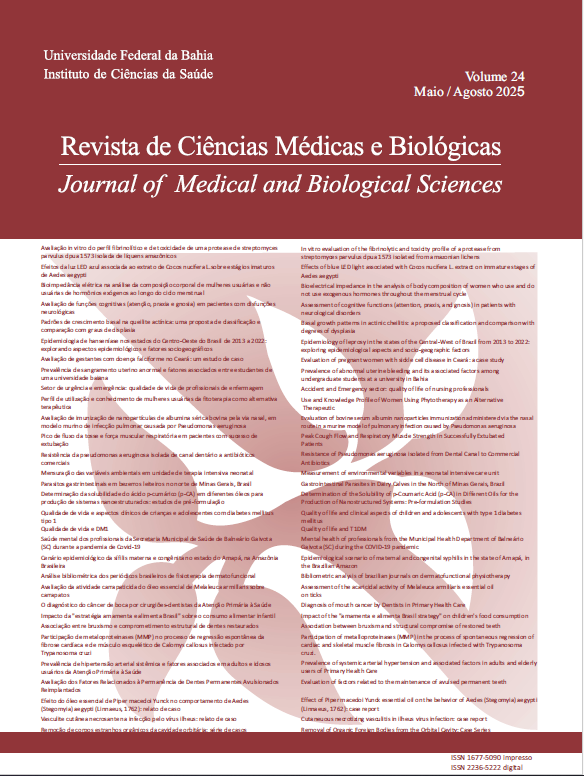Participation of metalloproteinases (MMP) in the process of spontaneous regression of cardiac and skeletal muscle fibrosis in Calomys callosus infected with Trypanosoma cruzi
Not applicable
DOI:
https://doi.org/10.9771/cmbio.v24i2.61676Keywords:
Calomys callosus; Trypanosoma cruzi; fibrosis; metalloproteinasesAbstract
Introduction: Chagas disease, caused by Trypanosoma cruzi, is a serious public health problem in Latin America, affecting millions of people. Calomys callosus, a rodent and natural reservoir of T. cruzi, has been seen as an important animal model for studying the pathogenesis of Chagas disease. Cardiac fibrosis, one of the main complications of the disease in humans, characterized by excessive collagen deposition in the myocardium, leads to cardiac dysfunction and congestive heart failure. Objective: To evaluate the participation of metalloproteinases in the modulation of cardiac fibrosis and in the skeletal muscle of C. callosus infected with the Colombian strain of T. cruzi. Methodology: Representative cases from previous studies were used with fragments of heart and skeletal muscle from C. callosus infected with the Colombian strain of T. cruzi on the 15th, 20th, 25th, 35th, 45th and 65th days for immunolabeling of metalloproteinases MMP-1, MMP-2, MMP-3 and MMP-9. Results: more evident deposits of MMP-2 and MMP-9 were seen between the 15th and 45th days of infection when compared to MMP-1 and MMP-3. Conclusion: The results suggest that infected C. callosus may be triggering early tissue repair modulation mechanisms.
Downloads
Downloads
Published
How to Cite
Issue
Section
License
Copyright (c) 2025 Journal of Medical and Biological Sciences

This work is licensed under a Creative Commons Attribution 4.0 International License.
The Journal of Medical and Biological Sciences reserves all copyrights of published works, including translations, allowing, however, their subsequent reproduction as transcription, with proper citation of source, through the Creative Commons license. The periodical has free and free access.


